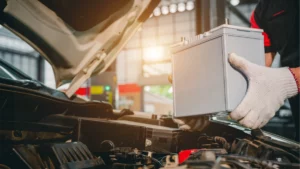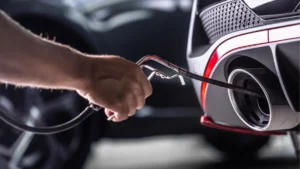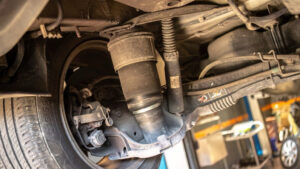Owning a vehicle does not only mean simply driving it from point A to B. Learning automotive maintenance also comes as a responsibility of having one.
One of the critical aspects of maintenance is auto engine repair—a significant factor in preserving both performance and longevity.
Read more to know the importance of engine auto repair and how to deal with it as a vehicle owner.
What Does Engine Repair Mean?
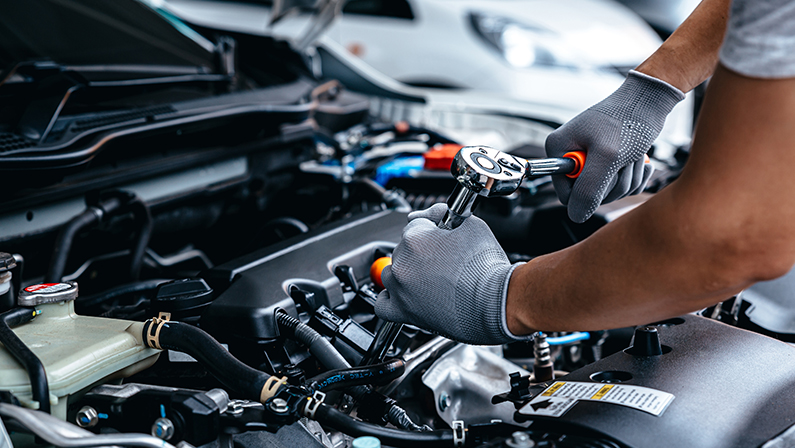
Engine repair encompasses mechanical interventions aimed at restoring the optimal functionality of an internal combustion engine. It involves a meticulous diagnosis of engine issues, disassembly, and targeted repairs or replacements of components such as pistons, valves, gaskets, and more.
This process is not merely about fixing visible problems but often requires a keen understanding of the engine’s intricate systems to address underlying issues.
When Does Your Engine Need Repair?
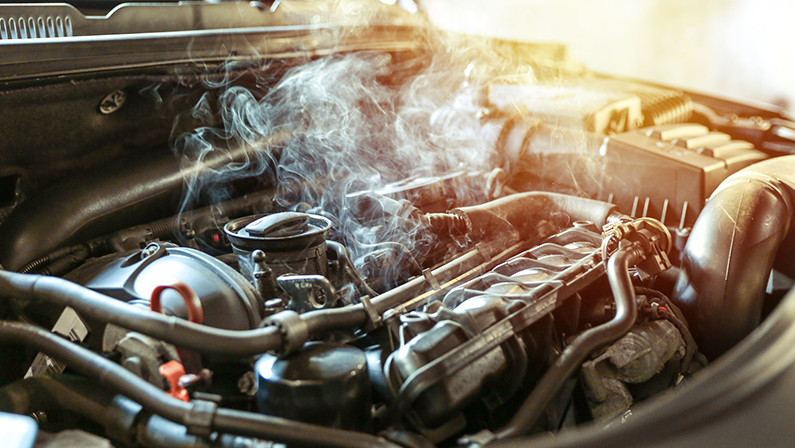
Recognizing the signs that indicate your car needs engine repair services is essential for maintaining your vehicle’s overall health and longevity. Explore the following key indicators to determine when your engine requires attention.
Erratic Performance
Your vehicle’s engine should operate seamlessly. It should have smooth acceleration and consistent power. If you notice sudden hesitations, stalling, or a noticeable drop in performance, it may signal underlying issues. Erratic performance could stem from various factors, including fuel system problems, ignition issues, or compromised engine components.
Poor Gas Mileage
A noticeable decrease in fuel efficiency is often a red flag for engine troubles. Poor gas mileage can significantly impact your vehicle’s overall performance and cost you more at the pump, whether due to clogged fuel injectors, a malfunctioning oxygen sensor, or other issues affecting combustion efficiency.
Engine That “Pings” During Acceleration
If your engine produces a distinct knocking or pinging sound during acceleration, it could indicate problems like pre-ignition or detonation. These issues may arise from improper fuel octane, ignition timing problems, or carbon deposits. Addressing these concerns promptly can prevent more extensive damage to your engine.
Overheating
An overheating engine is a critical issue that demands immediate attention. Causes range from coolant leaks, a malfunctioning thermostat, or a failing radiator fan. Ignoring signs of overheating can lead to severe engine damage, emphasizing the importance of timely diagnosis and repair.
Hard or Rough Engine Starts
Difficulty starting your engine or experiencing a rough idle can be symptomatic of various issues, including problems with the ignition system, fuel delivery, or the starter motor. Identifying and addressing these concerns early can prevent inconvenient breakdowns and ensure your engine starts reliably every time.
How Does the Auto Engine Diagnostic Process Work?
The auto engine diagnostic process serves as a crucial investigative tool with its advanced technologies:
Onboard Diagnostics (OBD) Systems
The modern auto engine shops usually have a diagnostic process that often begins with the utilization of onboard diagnostics systems, commonly known as OBD.
These systems use specialized sensors to monitor various engine parameters, generating error codes that mechanics can interpret to identify specific issues affecting the engine’s performance.
Diagnostic Trouble Codes (DTCs)
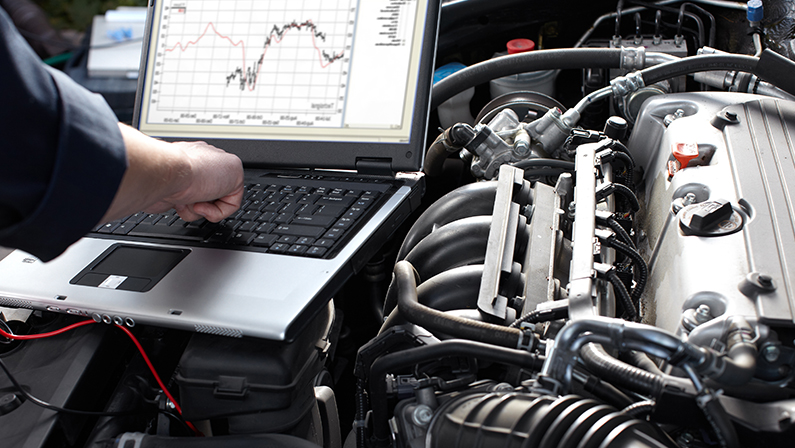
These alphanumeric codes are generated by the OBD system and serve as the first clue in the diagnostic puzzle. Each code corresponds to a specific problem within the engine or related systems, providing technicians with a roadmap for further investigation.
Skilled professionals use DTCs as a starting point to pinpoint and address the root causes of malfunctions.
Advanced Diagnostic Tools and Equipment
In addition to OBD systems, modern auto technicians leverage a range of advanced diagnostic tools and equipment. These may include handheld scanners, oscilloscopes, and emission analyzers, allowing for a comprehensive assessment of the engine’s condition.
These tools empower mechanics to conduct in-depth analyses, facilitating precise identification of issues and streamlining the car enging repair process.
What Common Auto Engine Problems Require Repair?
Your vehicle’s engine is not immune to wear and tear. Over time, certain common problems may emerge, demanding timely attention to prevent more extensive damage.
Oil Leaks
Prolonged use, gasket wear, or faulty seals can lead to oil leaks. Left unattended, these leaks can compromise lubrication, leading to engine overheating and accelerated wear. Regular inspection and prompt repairs are essential to prevent consequential damage.
Faulty Ignition System
Issues with the ignition system, such as malfunctioning spark plugs or a failing ignition coil, can result in poor engine performance, misfires, and decreased fuel efficiency. Timely replacing worn components ensures a reliable spark, contributing to smoother operation and optimal combustion.
Cooling System Failures
A malfunctioning cooling system, often caused by a faulty thermostat, radiator issues, or coolant leaks, can lead to engine overheating. Prompt identification and repair of cooling system problems are crucial to prevent severe engine damage and maintain proper temperature regulation. Regular maintenance, including coolant flushes, can mitigate these risks.
Can Auto Engine Repair Preventive Maintenance Practices Be Adopted?
Absolutely, adopting preventive maintenance practices for your auto engine is a proactive approach to extend its lifespan and enhance overall performance.
Regularly scheduled oil changes, air filter replacements, and timely tune-ups contribute to optimal engine health by ensuring proper lubrication, clean air intake, and efficient combustion.
Routine inspections for potential issues, such as leaks or worn-out components, enable early detection and resolution before they escalate.
Additionally, adhering to manufacturer-recommended service intervals and using high-quality fluids contribute to a well-maintained engine.
How Do Mechanics Approach Auto Engine Repair Procedures?
When it comes to auto engine repair procedures, mechanics follow a systematic and methodical approach to identify, diagnose, and address issues efficiently.
The process typically begins with a thorough inspection, during which the mechanic may utilize diagnostic tools and equipment to assess the engine’s condition.
Once the problem is identified, a detailed action plan is formulated, outlining the specific repairs or replacements needed.
Vehicle engine repair experts rely on their expertise and experience to execute these procedures meticulously, ensuring precision in disassembly, part replacement, and reassembly.
Regular testing and post-repair inspections are often conducted to guarantee the engine’s optimal functionality before returning the vehicle to the owner.
Are There Different Types of Auto Engine Repairs?
Auto engine repairs come in various forms, ranging from comprehensive overhauls to targeted fixes for specific components.
Major Overhauls – Rebuilding the Engine
Major overhauls involve a comprehensive reconstruction of the engine, addressing significant wear and tear or extensive damage. Engine rebuilding aims to restore optimal performance, reliability, and longevity, making it a solution for engines showing signs of significant deterioration over time.
Minor Repairs – Addressing Specific Components
Minor repairs target specific components or systems within the engine, addressing issues that may arise from normal wear, faulty parts, or minor malfunctions. Examples include replacing a damaged serpentine belt, fixing a malfunctioning sensor, or repairing a small oil leak.
Emergency Repairs – Dealing with Sudden Breakdowns
Emergency repairs are undertaken in response to unexpected engine failures or breakdowns. These repairs focus on quickly resolving issues that can leave a vehicle stranded.
What Are the Cost Considerations for Auto Engine Repair?
Various factors influence the overall expense of engine repairs, ranging from the type and complexity of the issue to the choice of replacement parts.
Extent of Damage
The severity of the engine problem significantly impacts repair costs. Minor repairs targeting specific components are generally more affordable than major overhauls requiring extensive rebuilding or replacement.
Labor Costs
The complexity of the repair procedure and the labor hours required play a crucial role in determining overall expenses. Skilled labor is essential for intricate repairs, contributing to the total cost of the engine repair and service.
Replacement Parts
The type and quality of replacement parts selected for the repair influence costs. Original Equipment Manufacturer (OEM) parts are often more expensive than aftermarket alternatives, and their quality can affect the long-term performance of the engine.
Diagnostic Fees
Mechanics may charge diagnostic fees to assess the issue and determine the necessary repairs. This initial cost is crucial for identifying the root cause of the problem but should be factored into the overall repair budget.
Location and Service Provider
Repair costs can vary based on geographical location and the reputation of the service provider. Urban areas with higher living costs may experience higher labor rates, and well-established repair shops may charge premium fees for their expertise and facilities.
Can Auto Engine Repairs be DIY, or Should Professionals Handle Them?
While DIY enthusiasts can tackle some maintenance tasks, certain complexities and potential pitfalls make professional intervention crucial for many engine repairs.
If you need an auto engine repair expert for your vehicle, we recommend you talk to our specialists to get an initial diagnosis and proper service. Contact us today to schedule an appointment.
How Does Regular Maintenance Contribute to Long-Term Engine Health?
By adhering to a routine maintenance schedule, you enhance reliability and mitigate the risk of more extensive and costly repairs down the road.
- Optimal Lubrication: Regular oil changes ensure that the engine is adequately lubricated, preventing friction and wear on critical components and extending the overall lifespan of the engine.
- Efficient Cooling System: Periodic checks and maintenance of the cooling system, including radiator flushes, help prevent overheating, ensuring that the engine operates within the optimal temperature range and preventing potential damage.
- Clean Air Intake: Replacing air filters at recommended intervals promotes a clean air intake, preventing debris and contaminants from reaching the engine. This, in turn, maintains efficient combustion and contributes to better fuel efficiency.
- Timely Component Inspections: Routine inspections of belts, hoses, and other engine components allow for the early detection of wear or potential issues, enabling timely replacements and preventing unexpected breakdowns.
What Steps Can Be Taken to Avoid Common Auto Engine Issues?
By incorporating thoughtful practices into your routine, you can significantly reduce the risk of engine-related complications. Below are the steps that can be taken to ensure your auto engine remains in optimal condition.
Adhering to Manufacturer’s Maintenance Schedule
Regular oil changes, filter replacements, and other scheduled services are designed to address wear and tear, ensuring that your engine operates at peak efficiency throughout its lifespan.
Driving Habits and Their Impact on Engine Health
Avoiding aggressive acceleration, abrupt stops, and excessive idling minimizes stress on the engine components.
Additionally, allowing the engine to warm up before driving in cold weather and avoiding overloading the vehicle are habits that contribute to sustained engine performance over time.
Safeguarding Your Engine’s Lifeline
Regular inspections, adherence to manufacturer guidelines, and prompt attention to emerging issues are essential practices to keep your engine running smoothly.
For comprehensive car engine repair, care, and professional assistance, entrust your vehicle to our engine specialists at Status Automotive. Our experienced technicians specialize in diagnosing, repairing, and maintaining engines with precision and care.
Ensure the long-term health of your engine—schedule your maintenance or repairs with Status Automotive today. Your vehicle deserves the best, and we’re here to provide it.

